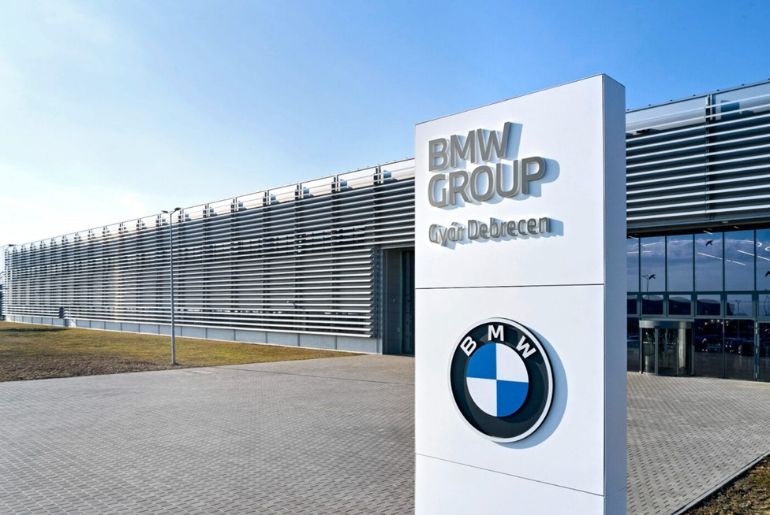BMW is set to commence series production of its all-electric iX3 at its new Debrecen plant by the end of October 2025. This launch marks a key milestone in BMW’s Neue Klasse strategy, which focuses on next-generation electric vehicles combining sustainability, efficiency, and premium driving performance.
The Debrecen facility represents a flagship in BMW’s electrification and sustainability initiatives. Powered entirely by renewable energy, the plant features a 50-hectare photovoltaic solar array generating approximately 45 GWh of electricity annually, covering nearly a quarter of its energy requirements. Excess solar energy is stored in a thermal reservoir with 130 MWh capacity, and heat recovery systems further reduce energy demand in the plant’s paint shop by around 10%.
A highlight of the facility is the fully electrified paint shop, which eliminates gas-fired ovens, reducing annual CO₂ emissions by up to 12,000 tonnes. In combination with sixth-generation high-voltage batteries incorporating 50% secondary materials, the plant achieves a CO₂ output of about 80 kg per vehicle during production — roughly two-thirds lower than comparable BMW production sites. Once full production capacity is reached, emissions per vehicle are expected to drop further to around 34 kg CO₂e.
BMW has implemented advanced production technologies at Debrecen to enhance efficiency and quality. The press shop uses servo-driven lines capable of producing up to 10,000 parts per day, while the body shop relies on nearly 1,000 robots strategically positioned through simulation for optimal workflow. Autonomous logistics systems, including electric tugger trains and smart transport robots, ensure a fully electric material flow across production halls.
Additionally, the plant employs a digital planning approach, simulating every production process in a virtual factory environment. This allows for precise installation of production lines, early validation of complex processes, and accelerated ramp-up times for new models like the iX3.
The iX3 electric SUV is central to BMW’s strategy for sustainable mobility. Its production combines the brand’s hallmark driving dynamics with environmentally responsible manufacturing practices. BMW notes that the iX3 will achieve lower overall emissions than a traditional internal combustion engine vehicle after just 20,000 kilometres of operation.
The launch of iX3 production at Debrecen underscores BMW’s commitment to leading the transition to electric mobility, demonstrating that high-performance vehicles can be manufactured with sustainability, efficiency, and cutting-edge technology at the forefront.

